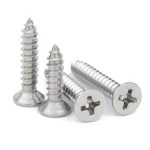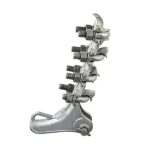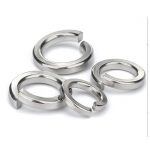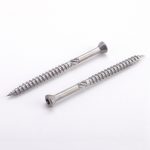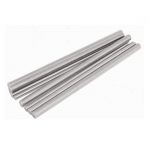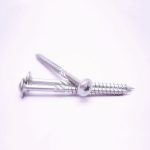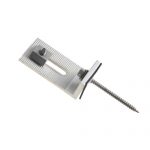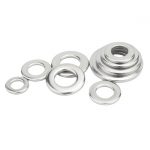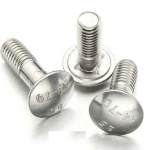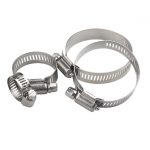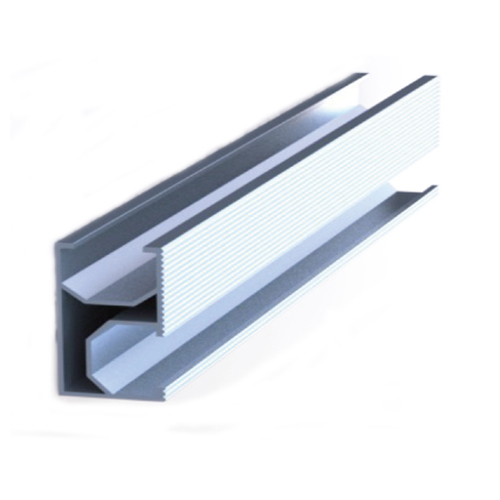
Standard: Aluminum Alloy Guide
Material: Aluminium
Surface finish:Plain or Customized
Packing: cartons with furmigated pallets
Supply ability: 50tons per month
Aluminum is one of the most versatile and widely used metals in the world. It is lightweight, durable, and corrosion-resistant, making it a popular choice for a wide range of applications, from aerospace and automotive to construction and packaging. However, not all aluminum alloys are created equal, and choosing the right alloy for your project is crucial for achieving the desired performance and cost-effectiveness. In this article, we will provide a comprehensive guide to aluminum alloys, including their properties, classifications, and applications, to help you make an informed decision.
What are Aluminum Alloys?
Aluminum alloys are mixtures of aluminum with other metals or non-metals that are added to enhance its properties, such as strength, toughness, hardness, and corrosion resistance. Aluminum alloys are classified based on their chemical composition and heat treatment, which affect their mechanical properties, such as tensile strength, yield strength, elongation, and hardness. Aluminum alloys are typically identified by a four-digit number system, where the first digit represents the alloying element and the second two digits indicate the minimum aluminum percentage.
Properties of Aluminum Alloys
Aluminum alloys have several properties that make them desirable for different applications. Some of the key properties of aluminum alloys are:
Lightweight
Aluminum alloys have a low density, which makes them one of the lightest metals used in structural applications. The specific gravity of aluminum is about one-third that of steel, which translates to a lower weight and higher strength-to-weight ratio.
Corrosion Resistance
Aluminum alloys have excellent corrosion resistance due to the formation of a protective oxide layer on the surface, which prevents further oxidation and corrosion. This makes aluminum alloys suitable for outdoor and marine applications, where exposure to moisture and saltwater can cause corrosion.
Strength and Toughness
Aluminum alloys can be heat-treated to increase their strength and toughness, making them suitable for high-stress applications. Some aluminum alloys, such as 7075-T6, have a higher strength-to-weight ratio than some steels, making them suitable for aerospace and defense applications.
Conductivity
Aluminum alloys have high electrical and thermal conductivity, making them suitable for electrical and heat transfer applications. Aluminum alloys are often used in the construction of heat sinks, radiators, and electrical conductors.
Classification of Aluminum Alloys
Aluminum alloys are classified into two major categories: wrought alloys and cast alloys. Wrought alloys are produced by a series of mechanical and thermal processes, such as rolling, forging, and extrusion, which result in a wrought structure with improved mechanical properties. Cast alloys, on the other hand, are produced by pouring molten metal into a mold and allowing it to solidify, resulting in a cast structure with lower mechanical properties.
Wrought alloys are further classified into several series based on their alloying elements and properties. Some of the common wrought alloy series are:
1000 Series
The 1000 series aluminum alloys are pure aluminum, with a minimum aluminum content of 99%. These alloys are soft, ductile, and easily formed, but have low strength and are not heat-treatable. They are often used in packaging and electrical applications.
2000 Series
The 2000 series aluminum alloys are alloyed with copper, and sometimes with other elements, to improve their strength and toughness. These alloys are heat-treatable and have high strength and hardness, making them suitable for aerospace and defense applications.
3000 Series
The 3000 series aluminum alloys are alloyed with manganese, which improves their strength and corrosion resistance. These alloys are not heat-treatable, but can be cold-worked to improve their mechanical properties. They are often used in automotive and construction applications.
4000 Series
The 4000 series aluminum alloys are alloyed with silicon, which improves their welding and brazing characteristics. These alloys are often used in welding and automotive applications.
5000 Series
The 5000 series aluminum alloys are alloyed with magnesium, which improves their strength and corrosion resistance. These alloys are not heat-treatable, but can be cold-worked to improve their mechanical properties. They are often used in marine and transportation applications.
6000 Series
The 6000 series aluminum alloys are alloyed with magnesium and silicon, which improves their strength and formability. These alloys are heat-treatable and have good corrosion resistance, making them suitable for architectural and structural applications.
7000 Series
The 7000 series aluminum alloys are alloyed with zinc, and sometimes with other elements, to improve their strength and toughness. These alloys are heat-treatable and have high strength and hardness, making them suitable for aerospace and defense applications.
Cast alloys are classified based on their composition and properties. Some of the common cast alloy types are:
Al-Si Alloys
The Al-Si alloys are aluminum-silicon alloys that have good casting properties, high strength, and good wear resistance. These alloys are often used in automotive and industrial applications.
Al-Cu Alloys
The Al-Cu alloys are aluminum-copper alloys that have good casting properties, high strength, and good corrosion resistance. These alloys are often used in marine and architectural applications.
Al-Mg Alloys
The Al-Mg alloys are aluminum-magnesium alloys that have good casting properties, high strength, and good corrosion resistance. These alloys are often used in aerospace and defense applications.
Applications of Aluminum Alloys
Aluminum alloys have a wide range of applications in different industries, thanks to their unique properties and versatility. Some of the common applications of aluminum alloys are:
Aerospace and Defense
Aluminum alloys are widely used in aerospace and defense applications, such as aircraft frames, engine components, and missiles. The high strength-to-weight ratio and corrosion resistance of aluminum alloys make them ideal for these applications.
Automotive
Aluminum alloys are increasingly used in automotive applications, such as engine blocks, wheels, and body panels. The lightweight and corrosion-resistant properties of aluminum alloys can improve fuel efficiency and reduce emissions.
Construction
Aluminum alloys are used in construction applications, such as windows, doors, and curtain walls. The corrosion-resistant and low-maintenance properties of aluminum alloys make them suitable for these applications.
Packaging
Aluminum alloys are used in packaging applications, such as beverage cans and foil, due to their light weight, durability, and recyclability.
Choosing the Right Aluminum Alloy for Your Project
Choosing the right aluminum alloy for your project requires careful consideration of several factors, such as the desired properties, application requirements, and cost. Some of the key factors to consider when selecting an aluminum alloy are:
Mechanical Properties
The mechanical properties of aluminum alloys, such as strength, hardness, and ductility, should match the application requirements. The required mechanical properties can be achieved by selecting the right alloy and heat treatment process.
Corrosion Resistance
The corrosion resistance of aluminum alloys should match the application environment, such as exposure to moisture, saltwater, or chemicals. The right alloy and surface treatment can improve the corrosion resistance of aluminum alloys.
Formability and Weldability
The formability and weldability of aluminum alloys are important for applications that require shaping, bending, or joining. The right alloy and processing can improve the formability and weldability of aluminum alloys.
Cost
The cost of aluminum alloys can vary depending on the alloy type, processing method, and market conditions. The cost should be considered in relation to the required properties and application requirements.
Maintenance and Care of Aluminum Alloys
To ensure the longevity and performance of aluminum alloys, proper maintenance and care is essential. Some of the key considerations for maintaining and caring for aluminum alloys are:
Cleaning
Aluminum alloys should be cleaned regularly to remove dirt, debris, and other contaminants. Mild soap and water can be used for cleaning, while harsh chemicals and abrasive materials should be avoided.
Surface Protection
Aluminum alloys should be protected from exposure to moisture, saltwater, and chemicals, which can cause corrosion and damage. Surface treatments, such as anodizing and painting, can improve the surface protection of aluminum alloys.
Handling and Storage
Aluminum alloys should be handled and stored carefully to prevent damage and deformation. They should be stored in a dry and clean environment, away from moisture and heat.
Repair and Maintenance
Aluminum alloys can be repaired and maintained by welding, machining, and other processes. However, it is important to use the right techniques and materials to avoid damaging the alloy.
FAQs
What is the most common aluminum alloy used in aerospace applications?
The 7000 series aluminum alloys, such as 7075, are commonly used in aerospace applications due to their high strength and toughness.
Can aluminum alloys be recycled?
Yes, aluminum alloys can be recycled multiple times without losing their properties or quality. Recycling aluminum alloys can reduce energy consumption and environmental impact.
What is the difference between cast and wrought aluminum alloys?
Cast aluminum alloys are made by pouring molten aluminum into a mold, while wrought aluminum alloys are made by shaping and forming aluminum through mechanical processes. Cast alloys are typically used in casting and molding applications, while wrought alloys are used in extrusion, forging, and rolling applications.
What is the most important factor to consider when selecting an aluminum alloy for a project?
The most important factor to consider when selecting an aluminum alloy for a project is the application requirements, such as mechanical properties, corrosion resistance, and formability. The alloy should be chosen based on its ability to meet these requirements.
What are some common surface treatments for aluminum alloys?
Some common surface treatments for aluminum alloys are anodizing, painting, and powder coating. These treatments can improve the surface protection and appearance of aluminum alloys.

